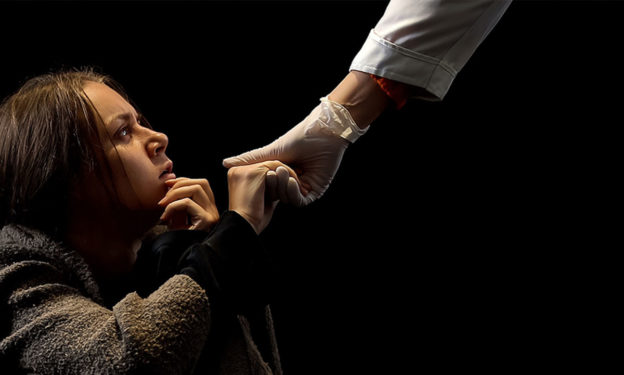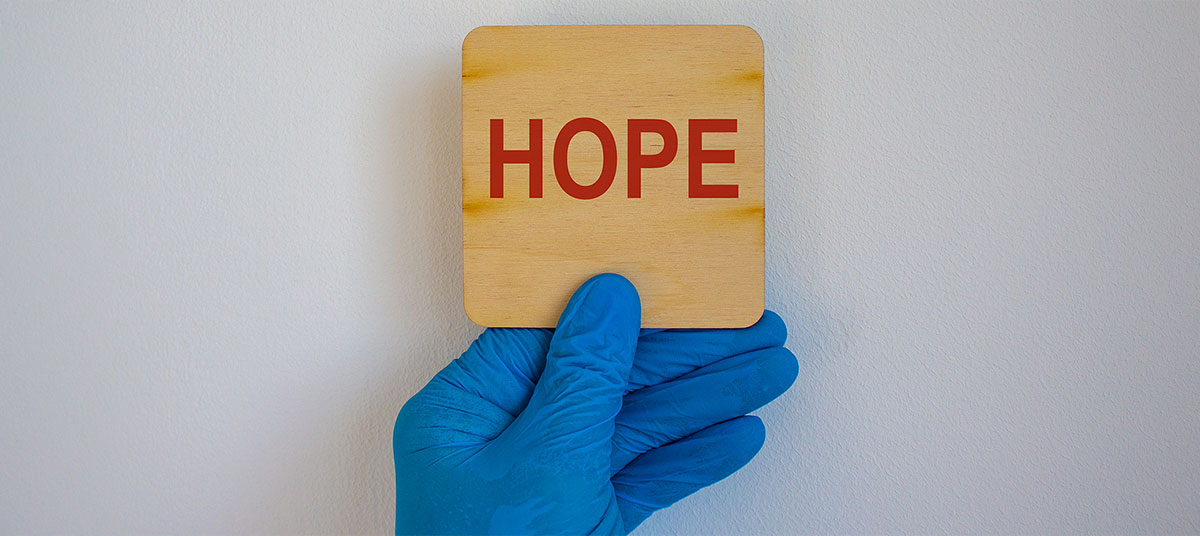Are you wondering if addiction is treatable? Would you like to know if opioid use disorder is reversible?
Opioids are a type of drug that interacts with specific receptors in the body and brain’s nerve cells, consequently reducing feelings of pain. This class of drugs can include prescription pain relievers, synthetic drugs like fentanyl and heroin. Despite its addiction risks, physicians widely prescribe opiates to treat acute pain, chronic pain, and palliative care.
As useful as these medications are to reduce pain, it is essential to remember that opioid use disorder is a condition with potentially severe consequences, including addiction, withdrawal, and overdose.
For over 26 years, people from all over the world have chosen Waismann Method as their opioid detox provider.
We know the challenges you face and the importance of creating a unique and personal experience for you right from the start.Call for Detox Options 1-800-423-2482
Understanding the Risks
Even though opioids have significant benefits for those in need of pain management, they also have significant risks. Some of the most common side effects include drowsiness, mental confusion, euphoria, nausea, and constipation. But that’s not all. Opioid drugs at high doses can lead to depressed respiration, overdose, and even death. Popular pain relievers include oxycodone (OxyContin®), hydrocodone (Vicodin®), codeine, morphine, fentanyl, and .
In the last decade, there has been an ungodly increase in the total number of deaths involving fentanyl and other synthetic opioids. Emergency department visits for suspected opioid overdoses continue to rise. Oct. 26, 2017, President Trump declared the opioid crisis a nationwide public health emergency. Since then, the government had put several measures in place to reduce the risks of addiction and overdose.
Opioid use can lead to physical dependence within a short time, sometimes in as little as a month. When the dependent person decides to reduce or stop the use, withdrawal symptoms occur.
Typical withdrawal symptoms include:
- generalized pain
- nausea/vomiting
- cramps
- diarrhea
- dilated pupils
- restlessness
- anxiety
- chills
- insomnia and intense cravings.
Because of the severity of these symptoms, many people continue using the drug. The possibility of developing dependence, tolerance, and addiction, which involves genetic and environmental factors, such as ease of access to the drug, contributes to the risk and intensity of the opioid use disorder.
When Opioid Addiction Overtakes One’s Life
According to the American Medical Association (AMA), most of the people who use heroin started by abusing prescription opioids. When tolerance to the pain medication increases, the ability to function without the drug decreases, ultimately leading to a downward spiral. The uncontrollable need to feed the cravings and prevent withdrawals leads some people to cross lines they never thought possible.
“Addiction is a result of circumstances and not bad decision-making.”
Clare Waismann
Removing the Shackles of Shame
Shame fuels addiction and the addiction treatment community needs to change how they view and treat people.
It is time to reverse society’s teaching of guilt and shame. We need to change the archaic’ idea of further breaking people down to rebuild them. When people are hurting, they need support, compassion, and care. Making them carry the burden of guilt and shame only makes them further crave ways to self-medicate.
It is okay to speak about our feelings and weaknesses, and strengths openly. Furthermore, it is okay to speak about addiction, and it is also important to remember that sharing one’s story also helps others by reducing stigma. We need to help people develop a sense of hope and a will to fight. More importantly, it is crucial to help people believe they are worthy of life, of happiness, regardless of where their addiction has taken them.
The Negative Power of Shame
Shame is such a complicated feeling; it is a negative view of oneself. Also, shame is a painful feeling associated with humiliation, making you want to hide or disappear. Being in a state of intense and prolonged guilt is unproductive and harmful. It can lead to anxiety, depression, and hopelessness, and it should not be an integral part of any addiction treatment.
We need to realize that those suffering from opiate addiction desperately want help. Individuals want to reach out, and more importantly, they want to be seen and heard. The issue is – they are scared of judgment. Additionally, many people feel defeated by prior unsuccessful attempts to overcome a withdrawal, complete treatment, or sustain a sober life.
Addiction Treatment Purpose
The purpose of successful addiction treatment should be to give patients the best possible quality of life and solid ground to stand on. Treatment providers should focus on “the person” and not the condition. It is up to the health care provider to help the patient feel understood and heard.
When who you are, or your own life experiences are consistently overlooked or denied, your place in this world becomes uncertain.
Opioid dependence is a medical condition requiring effective medical treatment, emotional support, and lifestyle changes. There are no overnight or one answer solutions that can reverse addiction years. On the same note, addiction treatment does not have to include a lifetime of shame and struggle.
Opioid Use Disorder – a Reversible and Treatable Condition
Society needs to be open to scientific discoveries and treatment options that provide real results. Ongoing programs that leave patients in a continuous revolving door of addiction treatments have proven to be profitable to providers and frustrating to patients. As a society, we can do more, and we can definitely do better.
Conclusion
People’s life experiences have shaped them into who they are; it has also given them the lens through which they view the world. We, addiction treatment professionals, have been allowed to positively impact other people’s lives — an ability that gives us reward and purpose. Although we are continually benefiting from brief rewarding moments of success, we need to work harder to provide long-term solutions for others. We need to create hope so some people can acquire the power and gratitude towards a life of happiness and health they simply do not have.
Reviewed by Clare Waismann, Registered Addiction Specialist (RAS), Substance Use Disorder Certified Counselor (SUDCC), founder of Waismann Method® Advanced Treatment for Opiate Dependence and Domus Retreat®. Clare Waismann is an authority and expert on opioid dependence, opioid use disorder, substance dependence, detoxification treatments, detox recovery, and other topics covered on RapidDetox.com.







